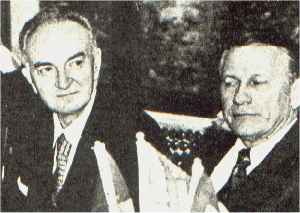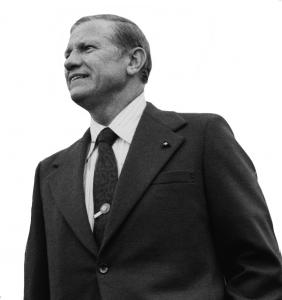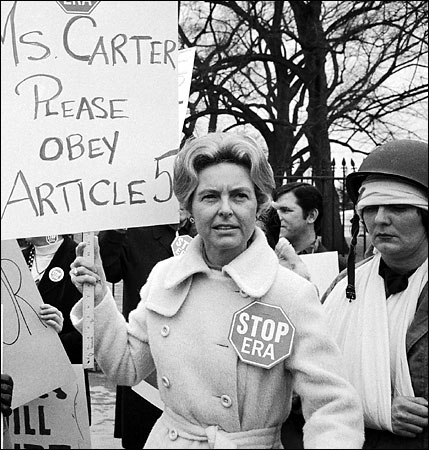The Knight of Columbus:
The First Term of John A. Volpe
On January 21st 1977, former Governor of Massachusetts, John Anthony Volpe was sworn in as the 38th President of the United States. The first Italian-American to become Commander in-Chief, his inauguration is seen by many as a glimpse of things into a more diverse American future. In one of the more memorable moments of Volpe’s address; the 68 year old said “
Only by proper combination of highways and transit modes can progress be made. Such progress will benefit auto and transit users alike and to those who would call me just a compulsive road builder. Let me say here today that I am a compulsive everything…I like to get things done!” His administration would come to resemble that creed as he somewhat made good on his promise of a truly bipartisan cabinet.
Secretary of State: Nelson A. Rockefeller
Secretary of Treasury: Lloyd M. Bentsen
Secretary of Defense: Henry Kissinger
Attorney General: Edward H. Levi
Secretary of Interior: Elizabeth Dole
Secretary of Commerce: Elliot Richardson
Secretary of Labor: George P. Shultz
Secretary of Agriculture: Richard Lamm
Secretary of Health, Education and Welfare: Caspar Weinberger
Secretary of Housing and Urban Development: Carla Anderson Hills
Secretary of Transportation: William Thaddeus Coleman Jr.
President Volpe, much to the dismay of the conservative wing of his party commanded over a fairly moderate administration. The biggest surprise in the cabinet would be that of the selection of Nelson A. Rockefeller for Secretary of State. Although out of elected office for about four years, many historians now believe that Rocky decided to get back to work in the federal government for a one final act. The Italian-American President would give Rockefeller and Kissinger a relative free hand in foreign affairs which generally meant a continuation of the Realpolitik policy of the previous administration. The Democrats within the administration included the fiscal conservative Senator Lloyd Bentsen of Texas, along with the popular wife of former agriculture Secretary Bob Dole…Elizabeth Dole of North Carolina, and the young environmental Governor of Colorado Dick Lamm.
Domestically, Volpe faced one of his first tests as President in learning how to deal with the Democratic controlled 95th Congress, which in all actuality was quite similar to how he dealt with a Democratic State legislature during his tenure as Massachusetts Governor. Within his first 100 days, President Volpe and his HEW Secretary “Cap the Knife” butted heads with Senator Russell Long on the Senate finance committee when he ordered the cancellation of several water projects due to their lack of cost effectiveness. Although Volpe’s budget revisions would be eventually overturned, it did leave a sour taste in many congressional Democrat’s mouths. However, President Volpe was also not afraid to use the Veto pen, as he overrode a few of Congress’ legislation in which he deemed as just your run of the mill Pork Barrel projects. Yet, many Historians now look back at the Volpe Presidency and see a somewhat cordial relationship with the 95th Congress. He was successful in getting a large percentage of his legislation passed partially due to his friendship with fellow Bay Stater, Speaker of the House Tip O’ Neil. The most crowning achievement being that of the Comprehensive Health Insurance Act or CHIA authored by Democratic Senators Shirley Chisholm and Edward Kennedy which passed in 1977. The plan was specifically designed to work in the form of a mandate, which would require Businesses to cover their employees, along with a Medicaid-like program for lower income families, in which all American citizens would be able to join by paying sliding-scale premiums based on their income.
Other successes in the form of legislation came in the form of the Community Reinvestment Act, Clean Water Act, International Emergency Powers Act, Civil Service Reform Act, Foreign Intelligence Surveillance Act, Pregnancy Discrimination Act and the Bankruptcy act. Two bills which were especially close to President Volpe’s heart would be the Ethics in Government Act and the Airline Deregulation Act. A champion of Ethics reform since his days as Governor, Volpe supported the Act’s goal of imposed financial disclosure requirements for elected officials as it restricted former government workers’ lobbying activities. Volpe in his support of the ADA, showed the he would continue the process of deregulating industries put in place by his predecessor in hope that they could stimulate more growth in the economy and free up money for other programs. However similarities with the Reagan administration on the Domestic front stopped there as he made it clear from his first day in office that he “
wanted to become the greatest school desegregator in American History.” He would enforce the creation of unitary fully integrated school districts and by fall of 1978 the number of Southern Black children enrolled in segregated schools dropped to around 5%. Volpe will also create a committee on Education headed by Labor Secretary George Schultz and HEW Secretary Caspar Weinberger to set up biracial organizations to manipulate a peaceful transition process without leading to violence. Volpe would also gain raging support from Women’s groups, when he valiantly declared his support for the ERA and went out on a national tour to see that it was duly ratified. This would prove to be another strike against Volpe in the minds of those in the conservative wing of the Republican Party especially that of Representative Phyllis Schlafly of Illinois (Beat out George E. Shipley for the House Seat in the 1970 midterm election) in the “Stop ERA” movement as she is quoted to have said “
the ERA would lead to women being drafted by the military and to public unisex bathrooms”.
Representative Phyllis Schlafly of Illinois promoting her "Stop ERA" movement in Atlanta, Georgia
The biggest obstacle that would come to consume the Volpe administration was how to wing America off it’s crippling dependency on foreign oil. One of the solutions would be the establishment of the Department of Energy and signed into law by Volpe on August 4, 1971. For the job of Secretary of the new agency, the 38th President would select one of the most outspoken voices on the environment in congress…Representative Mo Udall or Arizona. Although many conservative Republicans and Democrats rallied against such a liberal of a pick, Udall’s was narrowly confirmed by the time the department opened for operations in October. President Volpe also looked to places outside of the United States, as he looked into how they responded to the 1973 oil crises. One program that Volpe introduced in his National Energy Act of 1978 would be based of the National Alcohol Program of Brazil, which in 1975 was implemented by the Brazilian Government in hopes to wing the country off of foreign oil. The first phase of the program called for an anhydrous ethanol, which blended the sugar cane ethanol with levels from around 10% to 22%. Not only did President Volpe relax trade between Brazil and the United States for the importation of their ethanol; but he also gave subsidies to Ribbon Cane farmers in Florida, Louisiana, Hawaii and Texas to yield more crops for ethanol production. Along with the ethanol plan, Volpe also rallied around a coal to liquids program based on the Fischer-Tropsch process. Although many of his programs were supported by the Democratic congress, signs were beginning to show that his fractions coalition within his party was beginning to splinter.
Foreign Policy wise, President Volpe seemed to make good on his promise of softer tone to American diplomacy when within the first months of coming to office he went a goodwill tour across Europe. He visited with Prime Minister Edward Heath to discuss energy policy and the Middle East. However, it would be when President Volpe returned the country of his forefather’s in Italy where he would receive a Heroes welcome not seen since President Kennedy visited Ireland back in 1963. Volpe crowning achievement during the first two years of his term would be the signing of the Camp David Accords on September 17th, 1978. Volpe knew that if something were not to be done about the volatile situation in the Middle East, events there could rapidly spin out of control and could very well potentially be the launch pad for World War III. President Sadat of Egypt and Prime Minister Begin both held the same sentiments which enabled the creation of the framework of a true peace settlement between the two nations. After 12 days of intense negotiations at the Camp David retreat in the Catoctin Mountains in Maryland, an agreement finally came to pass. The Accords entailed the complete Israeli evacuation of the Sinai and outlined a broader future plan of peace in the Middle East.

President Volpe meeting with Michele "The Shark" Sindona during his 1977 visit to Italy.



)